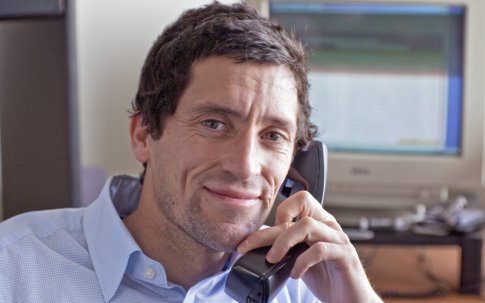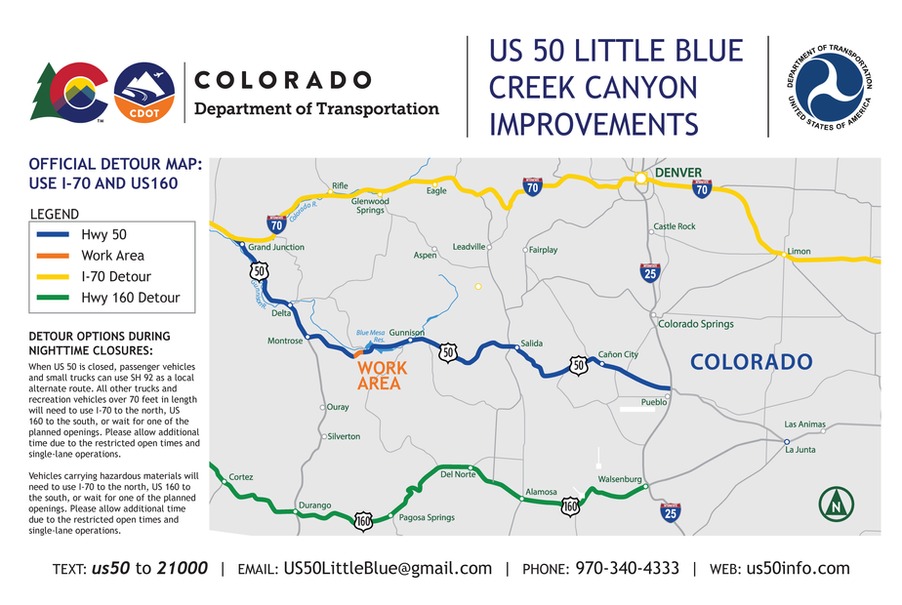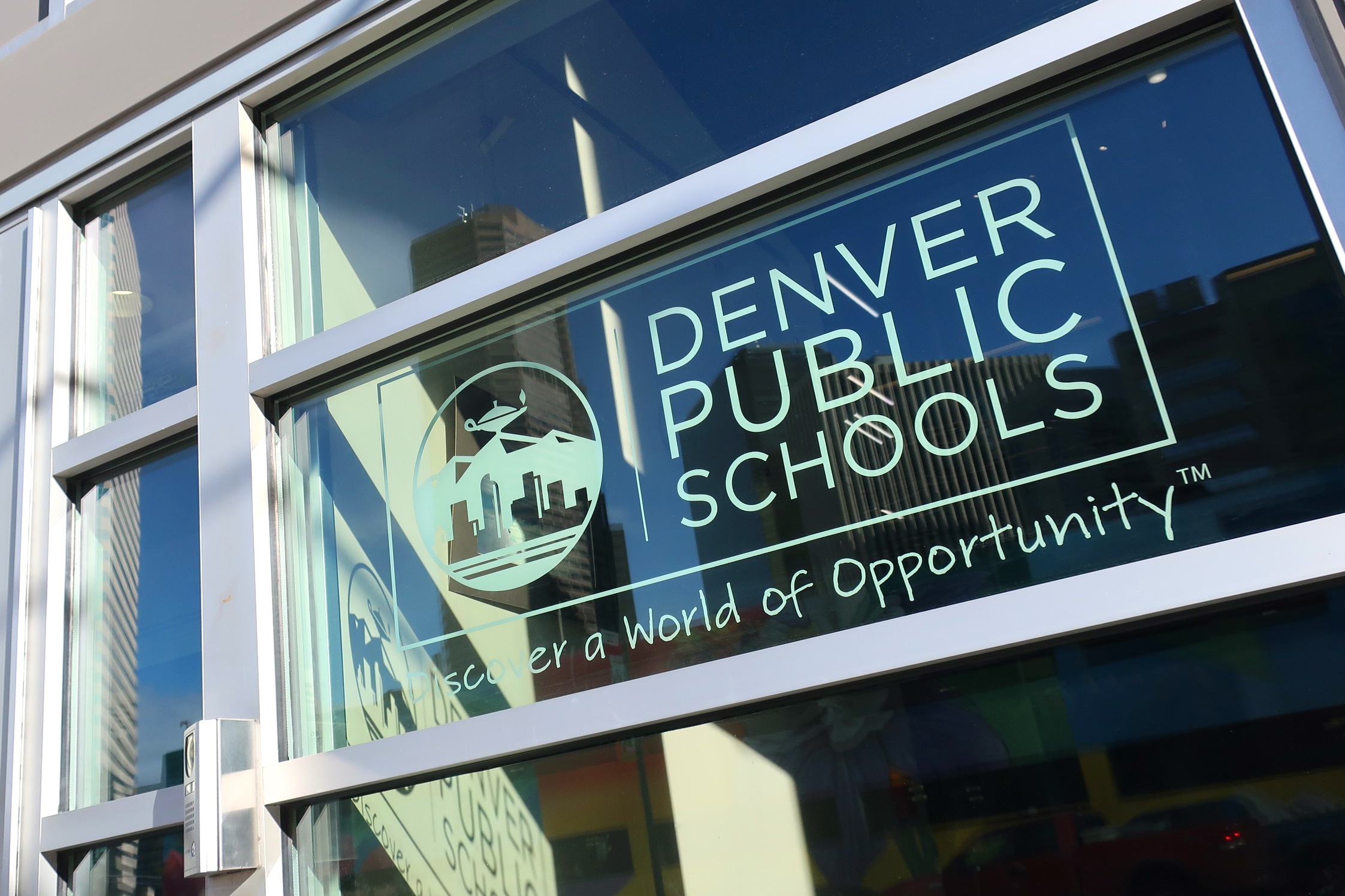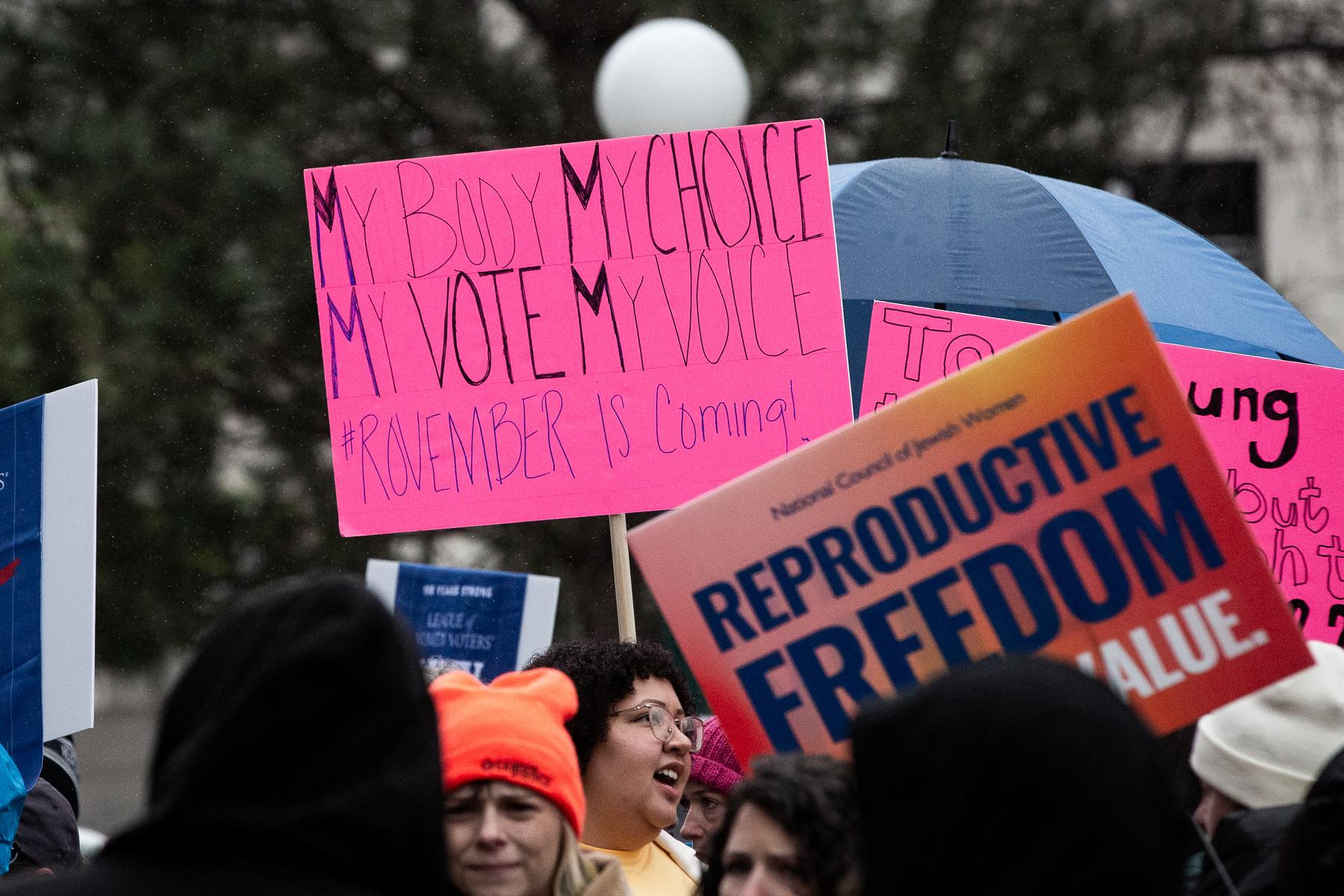This election, voters in seven poor school districts will decide whether to accept a deal from the state. It goes like this. If voters agree to raise property taxes to repair old school buildings, the state will also contribute, anywhere from a dollar for dollar match to as much as seven-to-one. No school district that’s eligible has turned this deal down, except one: Mapleton, which includes Thornton and Commerce City north of Denver. This year, it’s trying again, possibly for the last time. Colorado Public Radio’s Zachary Barr reports, as we cover election 2010.
<script>
The number of students attending York International School is growing. But the school’s building is not. To see one example of the problem this creates, you have to go outside the building, and onto the blacktop, where high school students study inside rented trailers.
unidentified teacher: So when the ball moves on a level plain, it does not move.
Susan Gerhart: This one, number three here, is a science lab and it is nothing near being what a what a science lab should be.
Susan Gerhart is the school’s director
Susan Gerhart: There’s carpet, you’re not supposed to have that, there’s no running water, we have no lab tables or anything for bunson burners or gas or anything like that.
Over at the Skyview campus, the problem goes beyond inadequate space. Chief Operations Officer Don Herman points to a leaky roof, moldy smelling hallways, and an electrical system that frequently blows fuses. And the pool? It’s in danger of collapse.
Don Herman: We got a structural engineer to look at it, he said you need to immediately drain this pool and abandon it. Which we did.
The pool isn’t slated to be repaired. School officials say there are more pressing needs, like new classrooms. The money to do that would come half from taxpayers, and half in matching funds from the state’s Building Excellent Schools Today Program, or BEST. Cary Kennedy is the state treasurer; her office runs the program.
Cary Kennedy: For the first time ever, the state is really helping the poorest communities around the state repair and oreplace their aging infrastructure. When it’s fully implemented, BEST will supply a billion dollars in school construction
For some time, Mapleton officials have been making it known that they want new buildings. But for the past three years voters have decided not to pony up. During that same period of time, the district’s received accolades for revamping it’s schools and improving student achievement. But despite that positive news, Superintendent Charlotte Ciancio says the aging infrastructure is interfering with kids’ ability to keep up. And she says four straight years of campaigning has taken a toll on staff.
Charlotte Ciancio: We’re looking forward to the day when we’ll actually just be able to dig up the ground, and build new buildings, and get back to focusing on our real work which is classroom instruction.
But in these last few days before November 2, Ciancio and other supporters have been rallying. They’ve gone door to door, put up signs urging “Yes for Mapleton ,” and invited undecided voters to a free spaghetti dinner.
<music>
Tim VanBinsbergen is managing the campaign. He speaks to guests at the dinner:
Tim VanBinsbergen: This is it. State says time’s up. State says, if your community doesn’t care about the children then you don’t get anymore money, this is our last chance for 32 million.
Charles Champion is in the audience and he’s already made up his mind.
Charles Champion: We’re already paying overboard for our property tax now. You think I’m going to vote to raise it again? I don’t think so.
Champion’s wife Dolores is here too. And the free food isn’t going to win her vote either.
Dolores Champion: We’ve lived here 51 years. Our children have already gone through the school system. In 51 years, don’t you think we have paid our part?
If the measure passes, the Champions, who own a 200,000 dollar house, will pay about 44 dollars more each year. Some commercial property owners also question the new tax. And, in a nutshell, this what Mapleton is up against. How do you convince people who don’t get a direct benefit from new schools to pay for them anyway? Don Herman pitches it this way:
Don Herman: As the schools go, as community goes. So if you do care about your community, you’re going to invest in your school.
This argument makes sense to Beto Weber who says he’s voting for the tax. He works at Carniceria Del Norte, a butcher shop and corner store.
Beto Weber: Para la ciudad es una mejora. Para los alumnos y para todos. Es un benefecio para todo la ciudad.
Weber says new schools would be an improvement: for students and for everyone. But if the majority of voters disagree the money will likely go elsewhere. That’s because there’s already a long line hoping for a chance to take state’s money. In addition to the seven districts voting on BEST grants this year, about 100 more across Colorado say they need new buildings, too.
Zachary Barr, Colorado Public Radio News.
The number of students attending York International School is growing.  But the school’s building is not. To see one example of the problem this creates, you have to go outside the building, and onto the blacktop, where high school students study inside rented trailers. Â
unidentified teacher: so when the ball moves on a level plain, it does not move.  Â
Susan Gerhart: This one, number three here, is a science lab and it is nothing near being what a what a science lab should be.
Susan Gerhart is the school’s director
Susan Gerhart: There’s carpet, you’re not supposed to have that, there’s no running water, we have no lab tables or anything for bunson burners or gas or anything like that. Â
Over at the Skyview campus, the problem goes beyond inadequate space. Chief Operations Officer Don Herman points to a leaky roof, moldy smelling hallways, and an electrical system that frequently blows fuses. And the pool? It’s in danger of collapse. Â
Don Herman: We got a structural engineer to look at it, he said you need to immediately drain this pool and abandon it. Which we did. Â
The pool isn’t slated to be repaired. School officials say there are more pressing needs, like new classrooms. The money to do that would come half from taxpayers, and half in matching funds from the state’s Building Excellent Schools Today Program, or BEST. Cary Kennedy is the state treasurer; her office runs the program. Â
Cary Kennedy: For the first time ever, the state is really helping the poorest communities around the state repair and oreplace their aging infrastructure. When it’s fully implemented, BEST will supply a billion dollars in school construction
For some time, Mapleton officials have been making it known that they want new buildings. But for the past three years voters have decided not to pony up. During that same period of time, the district’s received accolades for revamping it’s schools and improving student achievement. But despite that positive news, Superintendent Charlotte Ciancio says the aging infrastructure is interfering with kids’ ability to keep up. And she says four straight years of campaigning has taken a toll on staff. Â
Charlotte Ciancio: We’re looking forward to the day when we’ll actually just be able to dig up the ground, and build new buildings, and get back to focusing on our real work which is classroom instruction.
But in these last few days before November 2, Ciancio and other supporters have been rallying. They’ve gone door to door, put up signs urging “Yes for Mapleton ,†and invited undecided voters to a free spaghetti dinner.
Tim VanBinsbergen is managing the campaign. He speaks to guests at the dinner.
Tim VanBinsbergen: This is it. State says time’s up. State says, if your community doesn’t care about the children then you don’t get anymore money, this is our last chance for 32 million.
Charles Champion is in the audience, and he’s already made up his mind. Â
Charles Champion: We’re already paying overboard for our property tax now. You think I’m going to vote to raise it again? I don’t think so.
Champion’s wife Dolores is here too. And the free food isn’t going to win her vote either. Â
Dolores Champion: We’ve lived here 51 years. Our children have already gone through the school system. In 51 years, don’t you think we have paid our part? Â
If the measure passes, the Champions, who own a 200,000 dollar house, will pay about 44 dollars more each year. Some commercial property owners also question the new tax. And, in a nutshell, this what Mapleton is up against. How do you convince people who don’t get a direct benefit from new schools to pay for them anyway? Don Herman pitches it this way:
Don Herman: As the schools go, as community goes. So if you do care about your community, you’re going to invest in your school.
This argument makes sense to Beto Weber who says he’s voting for the tax. He works at Carniceria Del Norte, a butcher shop and corner store.Â
Beto Weber: Para la ciudad es una mejora. Para los alumnos y para todos. es un benefecio para todo la ciudad.
Weber says new schools would be an improvement -- for students and for everyone. But if the majority of voters disagree the money will likely go elsewhere. That’s because there’s already a long line hoping for a chance to take state’s money. In addition to the seven districts voting on BEST grants this year, about 100 more across Colorado say they need new buildings, too.
Zachary Barr, Colorado Public Radio News.
Ryan Warner: Apart from the seven school districts Zac mentioned, twenty-two others have tax hikes before voters.  Among them, South Routt, a rural area south of Steamboat Springs.
Dina Murray: The state’s been cutting back what they’re able to give districts.Â
Dina Murray is the district’s business manager.
Dina Murray: And we’re at a point now where we need our community to let us know, if they want us to reduce our services or are they willing to pay a little more to cover those reductions. Â
Ryan Warner: South Routt’s asking for about $350,000 in new property taxes annually. Murray knows the tough economy means some people will vote no, but she’s hopeful. Â
Dina Murray: We feel there’s support, and we’re pretty sure it may be enough to pass the mill levy override, but we’re just not sure. It’s going to be tight. Â
For a sense of much the economic slowdown has impacted schools, we turn to Jane Urschel. She’s the president of the Colorado Association of School Boards. 29 districts are asking voters to increase taxes for schools. I asked her how that number compares to previous years.
Â









